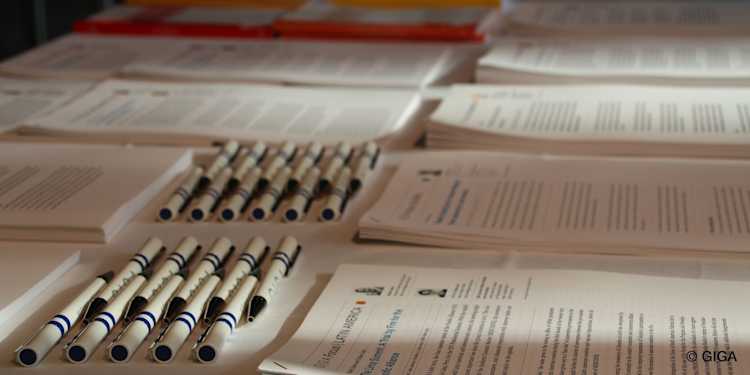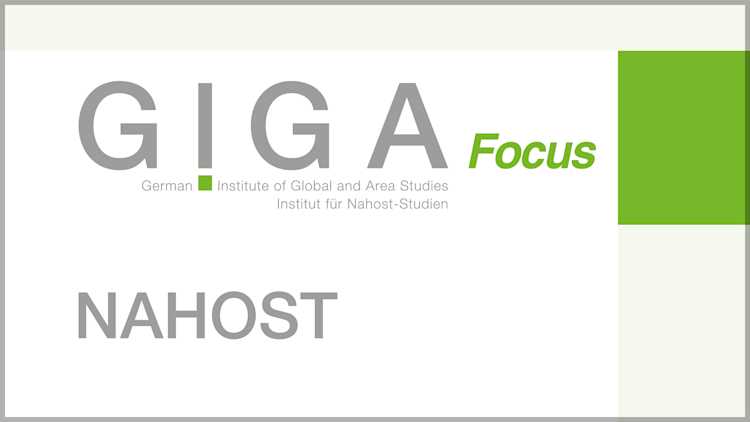- Startseite
- Publikationen
- GIGA Focus
- The Arab Spring: Triggers, Dynamics and Prospects
GIGA Focus International Edition English
The Arab Spring: Triggers, Dynamics and Prospects
Nummer 1 | 2012 | ISSN: 1862-3581
On 17 December 2010, the self-immolation of Tunisian vegetable vendor Mohammed Bouazizi sparked the Arab Spring. Within a few months, a wave of protest had swept away the despots of Tunisia, Egypt and Libya. Since then protests have been keeping the region, which has until recently been viewed as having stable authoritarian regimes and as being largely resistant to democratization, on edge.
Analysis
Since the outbreak of the Arab Spring, parliamentary elections and constitutional debates have been taking place in North Africa and the Middle East and the public discourse has been defined by open criticism of the remaining autocracies. How fundamental and sustainable these changes will prove to be cannot yet be judged with certainty. However, some striking commonalities can be noted.
The initial spontaneity and lightness with which the opposition movements called the regimes into question stunned not only Western observers but also the Arab rulers themselves. After the initial surprise, the remaining autocracies returned – with only limited success to date – to their former methods of stabilizing their rule.
The triggers, progression and intensity of the protests have varied from country to country. The reactions of the regimes have also ranged from cautious concessions to violent repression.
Most Arab regimes suffer from massive legitimacy deficits, and the citizens are demanding to finally be able to participate more fairly in political, economic and societal events. Their protests exhibit similar symbols and reciprocal references. These parallels make the Arab Spring a momentous and novel event that will have a lasting impact on the region.
Numerous Arab countries have seen a strengthening of moderate Islamist parties, which many people now view as competent and reliable alternatives to the existing regimes.
Fußnoten
Regionalinstitute
Forschungsschwerpunkte
Wie man diesen Artikel zitiert
Rosiny, Stephan (2012), The Arab Spring: Triggers, Dynamics and Prospects, GIGA Focus International Edition English, 1, Hamburg: German Institute for Global and Area Studies (GIGA), http://nbn-resolving.de/urn:nbn:de:0168-ssoar-288759
Impressum
Der GIGA Focus ist eine Open-Access-Publikation. Sie kann kostenfrei im Internet gelesen und heruntergeladen werden unter www.giga-hamburg.de/de/publikationen/giga-focus und darf gemäß den Bedingungen der Creative-Commons-Lizenz Attribution-No Derivative Works 3.0 frei vervielfältigt, verbreitet und öffentlich zugänglich gemacht werden. Dies umfasst insbesondere: korrekte Angabe der Erstveröffentlichung als GIGA Focus, keine Bearbeitung oder Kürzung.
Das German Institute for Global and Area Studies (GIGA) – Leibniz-Institut für Globale und Regionale Studien in Hamburg gibt Focus-Reihen zu Afrika, Asien, Lateinamerika, Nahost und zu globalen Fragen heraus. Der GIGA Focus wird vom GIGA redaktionell gestaltet. Die vertretenen Auffassungen stellen die der Autorinnen und Autoren und nicht unbedingt die des Instituts dar. Die Verfassenden sind für den Inhalt ihrer Beiträge verantwortlich. Irrtümer und Auslassungen bleiben vorbehalten. Das GIGA und die Autorinnen und Autoren haften nicht für Richtigkeit und Vollständigkeit oder für Konsequenzen, die sich aus der Nutzung der bereitgestellten Informationen ergeben.



